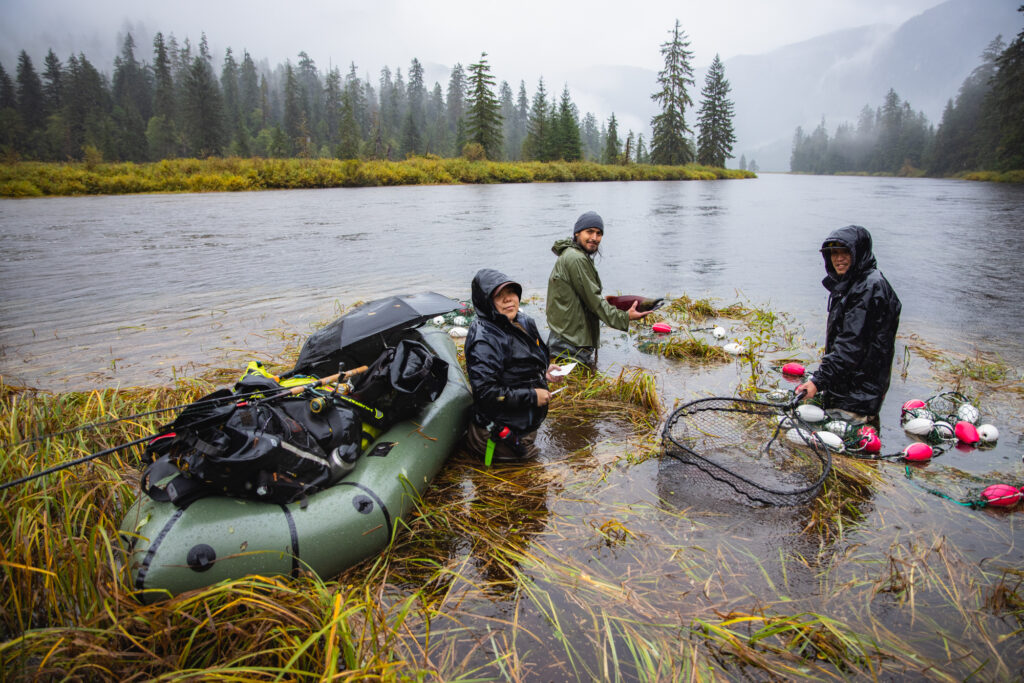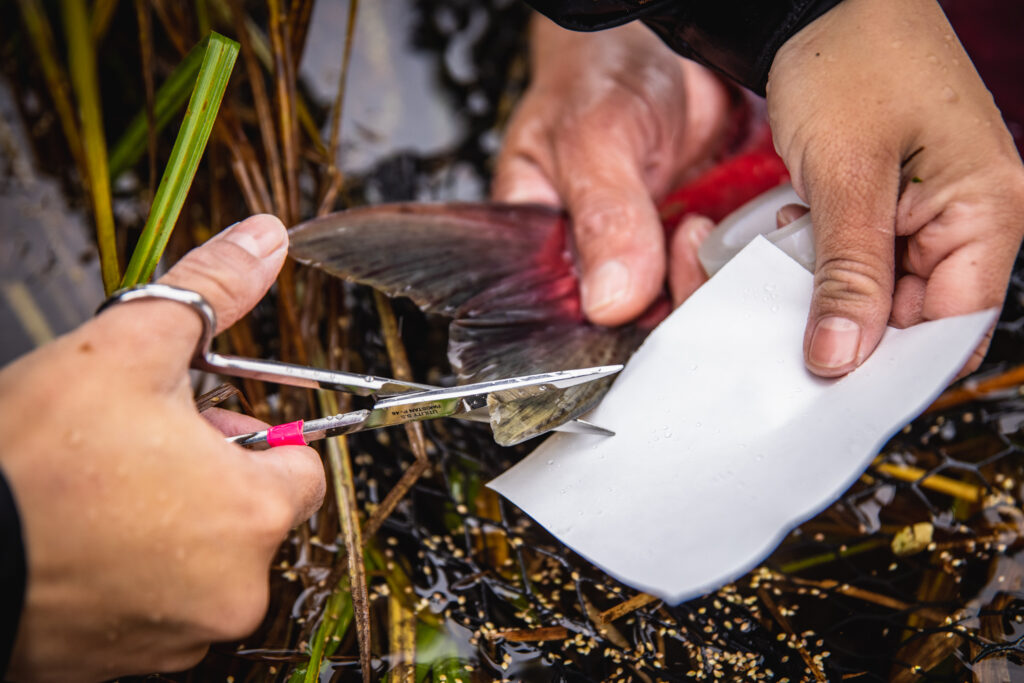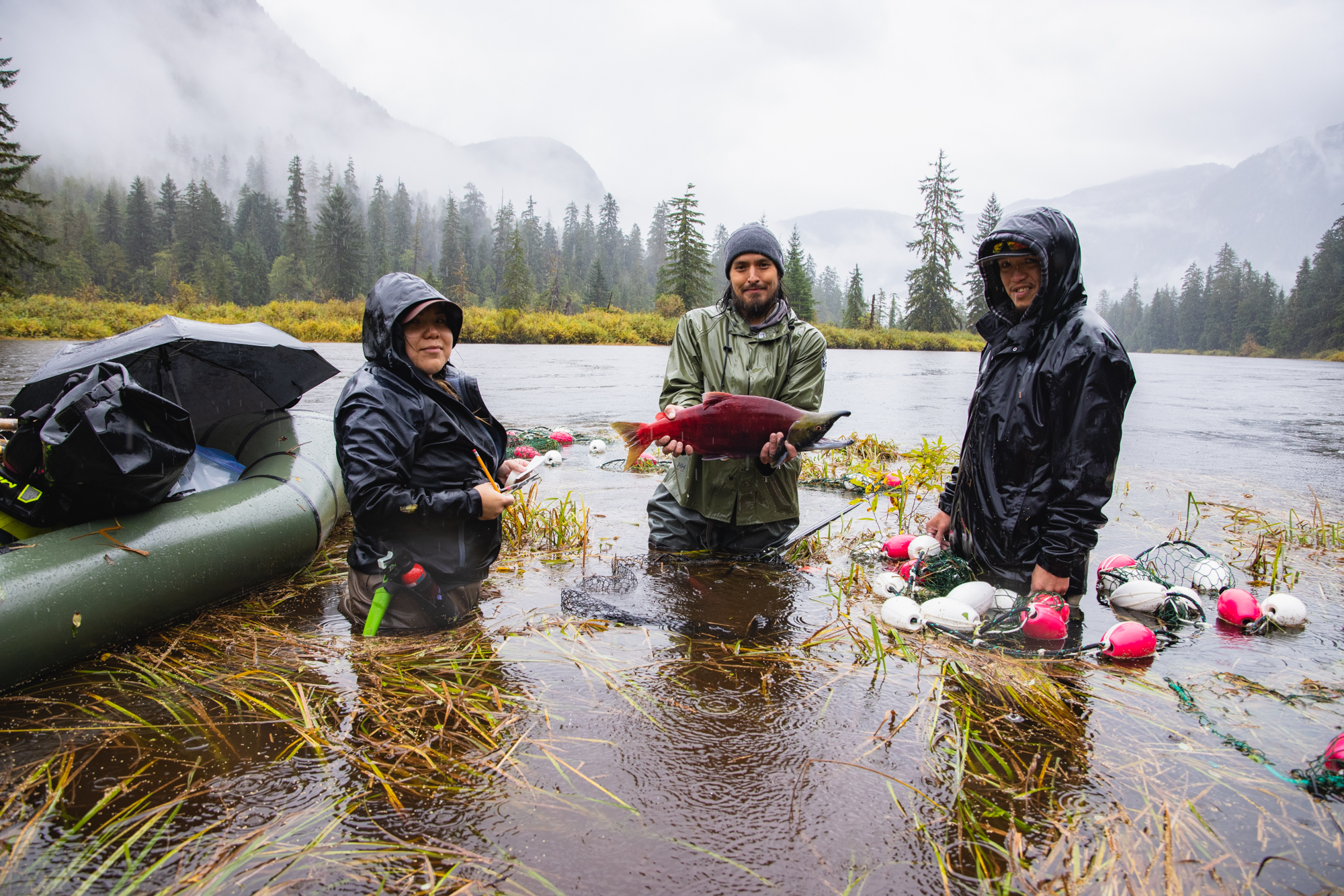Have you ever been asked to babysit bear cubs? Sierra Hall has. She was 15 at the time, working as a student bear guide in her territories and the experience changed her life and solidified her work in conservation in her territories.
She was guiding a big group of tourists with a few colleagues on a week-long trip, she recalls over the phone, — camping, hiking, observing the same momma bear and her cubs for days. On one of the last days, the mother had gained trust from the group and brought her cubs over to them and left them to be watched over by the group.
“She left her cubs right in front of us… ten feet away… they didn’t come any closer, they just fished in front of us and she left them with us. She was getting us to babysit her bears,” Sierra says. “It was the most amazing experience. She knew we were there, she knew from the past days that other big bears stayed away from us, so she found protection in us and went to do whatever she needed to do and came back.”
The experience was one of the most memorable of her life, she says, and in many ways, it solidified the importance of the conservation-based work she would be engaged in for years to come. There are many myths about bears, Sierra says, but if you have mutual respect for them, there’s nothing to fear.
‘We made it happen’
Sierra is from the Kitasoo Xai’xais First Nation, born and raised in Klemtu. She’s now 25 years old and has two sons. She has been working with her community’s stewardship department on and off again for the past 10 years.
“I started working at Spirit Bear Lodge in 2012. I was 15 at the time, working as a student guide. We worked during the summer, after school and on weekends. That was the jumpstart into learning how to be a bear guide.”
Sierra left the lodge for a few years, did research with the stewardship department, then went back into bear guiding, with a lot more responsibility than her time as a student guide.
“A day in the life of a bear guide… you get up, go to the lodge, get your boats ready, enjoy breakfast with the guests, make sure they’re all ready to go. The boats leave at 8am on the dot… you’re in the field, it takes about an hour to get to each destination,” Sierra explains. “We head back to the lodge by 5pm, in time for appies and dinner… then you do it all again the next day. That’s life as a guide.”
Sierra says Spirit Bear Lodge (SBL) has changed over time, with other wildlife viewing, cultural tours and adventure activities as options to the guests. SBL is owned and operated by the Kitasoo Xai’xais Nation and has served as a successful model for conservation-based eco-tourism. The Lodge, located in one of the most remote places in Canada, helped the community go from dependence on resource extractive jobs to an economy largely based on conservation.
“Our multi-day adventures build an understanding, respect, and connection to the heart of the Great Bear Rainforest and a culture that had roots as deep as the trees,” the Lodge’s website states. “This is more than just a vacation, it’s a journey that will intertwine you with this special place, its story and its people who continue to protect it for future generations.”
“We made it happen,” Sierra says. “SBL has brought so much to my community, not just financially, but emotionally… for the health of my people. It has brought so many positive benefits… cultural pride… I used to be embarrassed to be Indigenous. There was racism, all the struggles… and when I started with SBL in 2012, I remember not wanting to share my culture, push it into guests, but once you see the interest in what you’re sharing, you start to develop a new sense of pride in where you’re from.”
Sierra says her work has sparked a fire in her to continue to be a part of the hard work of preserving and protecting her culture, traditions and homelands.
“Ecotourism isn’t about taking from the community, which is the most important part. We need these sources of revenue for our community, ones that aren’t based on extracting precious resources. We’re the ones that are always here. People can make all the rules they want, but we’re here and know what really goes on. It’s important we have programs like our Guardians, to keep activities in check.”


‘I’m proud to be Kitasoo Xai’xais’
For thousands of years, the Kitasoo Xai’xais people have cared for their lands, waters and ways of life. With support from partners and allies, they’ve made significant steps to strengthen their community, stewardship plans and forward-thinking management measures.
In June, Sierra’s Nation declared the first-of-its-kind Marine Protected Area (MPA) for Gitdisdzu Lugyeks (Kitasu Bay), a sacred area in the heart of their traditional territory, significant to the community’s health, culture and economy.
The MPA, which includes an official declaration and 36-page management plan, aims to strengthen coastal conservation, marine productivity, local food security, and ultimately protect sea life — seabirds, whales, salmon, cod, halibut, shellfish and kelp forests — for generations.
Around the same time, the Kitasoo Xai’xais, along with the Nuxalk Nation signed a first-in-Canada agreement with BC to launch a pilot project that recognized their Coastal Guardian Watchmen with Park Ranger authorities, under the Park Act and Ecological Reserve Act.
Shortly after, the Kitasoo Xai’xais, along with the Gitga’at First Nation celebrated a new ban on black bear hunting in their territories, where there’s the highest concentration of Spirit Bears in this part of the world. All of these steps took years of work, negotiations, research and leadership.
“I think my leadership has done everything right in the past few decades,” Sierra says. “We have so many great programs for youth here in Klemtu. Doug’s a workhorse, raising money, making these big decisions that will impact people for generations… that’s the most powerful thing, he’s made such amazing changes in the community, and it’s reflecting in the people, in the success rates. I’m proud to be Kitasoo Xai’xais.”
Doug Neasloss is the Chief Councillor of the Kitasoo Xai’xais Nation. He’s been working tirelessly throughout his life to build up his community’s economy and overall well-being. He has prioritized youth programming, stewardship initiatives and is currently working on a forward-thinking endowment fund, raising money to sustain the work.
“Doug has helped bring so much pride to our community. We’re on a really good road… with the money we hope to raise… it will help my kids when they’re ready to work in 10 years… that money will be there for them. We’re focusing on raising up good youth, that’s the key for us, and I think we’re doing great,” Sierra says.
Sierra says she’s grateful to have spent a large period of her life working in her territories. Her experiences taught her about the wildlife her people have known for generations, about how to understand and respect the entire ecosystem. During her time researching the impacts of tourism on bear populations, Sierra saw the importance of proper place-based management, she says.
“We need to implement our management plans, group sizes, amount of people…We’re establishing all of those things within our departments. You can’t make a ‘one size fits all’ model.”
Sierra is currently entering a coordinating role, focusing on field safety for her staff, making sure there’s enough staff and that all of the gear they need is ready to go. Through her years of experience, she says she’s developed a deep respect for bears and all the interconnected parts of the ecosystem her people coexist with — it’s what pushes her to keep going in the work.
“A lot of people will never know, because they haven’t experienced what I have. I love this work…last year, I walked a new creek for the first time and we came across a Spirit Bear we’ve never met before… it’s incredible, it’s so special.”

